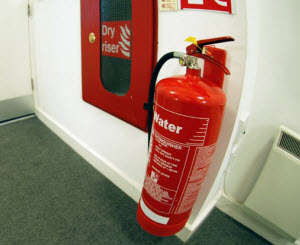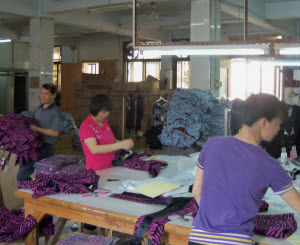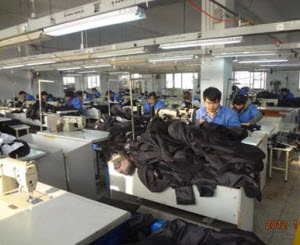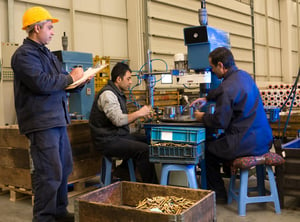Recently an American business executive named Chip Starnes was literally held hostage inside his office at his company's medical supplies factory on the outskirts of Beijing. Chip's imprisonment - which spanned nearly a week - started when it was announced that some of the manufacturing processes at the plant would be moved to India and that employees involved in those processes would be laid off.
While those employees were given severance packages, other employees began to suspect that the entire plant would close and that Starnes would flee without offering the remaining employees similar severance.
Unified in their belief that their jobs were in peril, and having little faith in their options for legal recourse, disgruntled employees reportedly barricaded all exits to the factory. Starnes, 42, was allegedly subjected to bright lights and loud noises to deprive him of sleep. This was apparently an effort to disorient Starnes and make him more pliable during negotiations.

The title of today's post is admittedly tongue-in-cheek, but let me be clear: the situation Chip Starnes is facing was very precarious from both a business and diplomatic standpoint. It was also rather terrifying, and everyone at InTouch and Quality Wars is very relieved to report that Chip was released on June 27th.

That being said, this should come as a clear wake up call to western buyers and importers. For many, a lack of corporate social responsibility may seem to only threaten a brand's image in the court of public opinion. However as this situation indicates, ensuring that your suppliers are not just socially compliant on paper but are actually maintaining a healthy - and to some extent, happy - work environment can help to prevent some much more personal consequences.
To avoid adding "squelch mutiny at factory" to your already crowded to-do list, we recommend holding regular social compliance audits of all of your major suppliers. These audits should be conducted at least twice per year, but under-performing factories should be audited more frequently to ensure progress towards compliance is maintained.

Regular social compliance audits will provide you with important information on a number of dimensions your suppliers' operations. Each audit should contain 3 distinct and equally important components:
1) Complete Facility Walk-through
A walk through of the entire facility - production area, warehouse, dormitories, canteen, etc - will give you insight into the physical conditions the employees are existing in every day.

It would be unreasonable to expect every factory in China to renovate their facilities to be 5-star resorts, but basic amenities must be upheld: enough space to move around and work in production areas, adequate ventilation, clearly marked and unobstructed emergency exits, sanitary cafeterias and restrooms, and easy access to potable water.
2) Thorough Documentation Review
Complimenting the facility walk-through, documentation review will illustrate the kinds of policies and atmosphere employees are surrounded by. These are less tangible aspects of their employment situations (at least for observers) that have a huge impact on their daily lives. A socially compliance supplier should have detailed documentation.

What is the factory's policy on discrimination? What constitutes disciplinary action, and what are the types and limitations of punishment? Are employee's indebted to their employees in anyway? Are their identification documents taken by management upon employment? What are the policies concerning overtime limits? Conditions for termination? Holiday wage rates? The list of questions is long, and the answers to each taken together can be a good barometer for the attitude of employees towards management.
[sidebar name="case studies"]
3) Employee Interviews
Checking fire exits and policies on paper are important and should not be overlooked. However, there is no substitute for talking to the employees themselves, and getting their input on the conditions they work under. In this way, you can determine if a supplier is socially compliant. Social compliance is a human-centric issue, so the people that work (and sometimes live) at the factory must be made a focal point of any investigation of working conditions.

Interviews with randomly selected workers will serve to gauge the employees understanding of the policies they work under and their feelings on the physical conditions as well, putting the information gathered in the steps above into much-needed context.
If employees report discrimination, or do not understand how their wages are calculated, feel that they are obligated to work excessive overtime, or bring up grievances about the state of their dormitories, these should all be considered red flags. Such claims will warrant further investigation, and suppliers should be counseled on how to resolve these issues as soon as possible.
It is impossible to tell definitively whether or not social compliance auditing at Starnes' factory could have helped to prevent his current state of captivity. However I do think it is likely that such drastic action taken by employees can be traced at least in part to some persistent issues that have remained undetected and unresolved for far too long.






